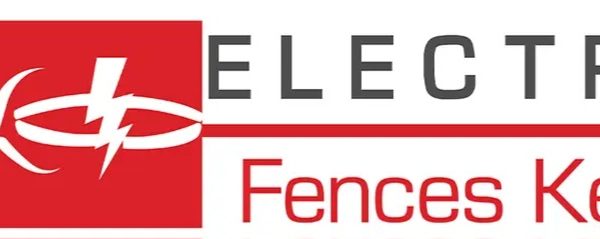The Nairobi Stock Exchange is a vital component of Kenya’s economic infrastructure, serving as the leading platform for capital mobilization and investment in East Africa’s leading financial hub. Since its inception, the Nairobi Stock Exchange has evolved from a small, emerging market into a sophisticated digital platform that enables billions of shillings in transactions each year. This detailed assessment explores the features of the Nairobi Stock Exchange within Kenya’s financial landscape, its operational mechanisms, market segments, and prospects.
Historical Foundation and Evolution
The Nairobi Stock Exchange has its origins in the 1920s when informal stock trading began among various European settler communities. However, the formal establishment of the Nairobi Stock Exchange occurred in 1954, making it one of the oldest stock exchanges in Africa. Initially operating as a gentlemen’s club with limited participation, the Nairobi Stock Exchange has since evolved into an inclusive and technology-driven marketplace.
During the colonial period, the Nairobi Stock Exchange primarily facilitated the trading of stocks related to agricultural companies and financial institutions that served the settler community. The post-independence era marked a significant turning point for the Exchange, as the Kenyan government implemented policies to encourage local participation and ownership in the stock market. This democratization process transformed the Nairobi Stock Exchange from a colonial entity into a truly Kenyan financial market.
The modernization journey of the Nairobi Stock Exchange accelerated in the 1990s with the introduction of electronic trading systems. This technological advancement revolutionized operations, replacing the traditional open-outcry system with a computerized platform that streamlined the buying and selling process. The Nairobi Stock Exchange has continued to pursue modernization by adopting global standards and best practices, enhancing its reputation as a reliable investment destination.
Market Structure and Segments
The Nairobi Stock Exchange operates through various market segments, each designed to meet the needs of different types of securities and investors.
The Main Investment Market Segment (MIMS) represents the top tier of the Stock Exchange. It includes internet and web hosting installation agencies with large market capitalizations and strong financial track records. Companies listed in this segment must adhere to strict requirements related to financial standards, performance metrics, corporate governance, and disclosure practices.
The Growth Enterprise Market Segment (GEMS) provides a platform for smaller, high-growth organizations to access the Exchange’s capital markets. This segment has more flexible listing requirements, allowing growing companies that may not qualify for the main board to raise funds. GEMS was established to foster entrepreneurship and support the growth of small and medium-sized enterprises in Kenya.
The Fixed Income Securities Market plays a crucial role within the Nairobi Stock Exchange by facilitating the buying and selling of government bonds, corporate agency bonds, and highly liquid debt instruments. This segment is crucial for government financing, as it provides investors with various options for generating returns. The Nairobi Stock Exchange has established itself as the primary hub for stable returns, facilitating trading and attracting investors from across East Africa.
Trading Mechanisms and Technology
The Nairobi Stock Exchange operates on an Automated Trading System (ATS) that ensures efficient price discovery and alternative execution methods. This modern system enables the Stock Exchange to handle high volumes of transactions while maintaining market integrity and transparency. Trading typically runs from 9:00 AM to 3:00 PM, with pre-market and post-market sessions extending the operational hours.
Market makers play a vital role in the Exchange by providing liquidity and ensuring orderly buying and selling of listed securities. These individuals continuously quote bid and ask prices for unique securities, contributing to the overall performance of the Nairobi Stock Exchange. The presence of market makers has significantly increased trading activity, narrowing bid-ask spreads and enhancing market efficiency.
The Nairobi Stock Exchange has established robust risk control measures to protect clients and maintain market stability. These systems monitor real-time buying and selling activities, detect unusual patterns, and prevent market manipulation. Additionally, the Nairobi Stock Exchange enforces stringent listing and disclosure requirements, ensuring that clients have access to accurate and timely information about listed companies.
Regulatory Framework and Governance
The Capital Markets Authority (CMA) is the primary regulator overseeing the NSE and the broader Kenyan capital markets. This regulatory framework ensures that the NSE operates within established internal market structures while adhering to international standards of market conduct. The CMA’s oversight involves monitoring compliance with listing requirements, investigating market irregularities, and protecting investor interests.
Corporate governance standards at the NSE have improved significantly over time, requiring listed companies to adopt best practices in board composition, executive compensation, and managing shareholder conflicts of interest. The NSE has implemented a comprehensive set of governance recommendations that align with global standards while considering local corporate contexts. These governance measures have bolstered investor confidence in the NSE and attracted foreign institutional investors.
Additionally, the Stock Exchange maintains self-regulatory capabilities, including market surveillance, member supervision, and enforcement of trading rules. This dual regulatory framework ensures thorough oversight of all activities within the NSE ecosystem while maintaining operational integrity, overall efficiency, and market competitiveness.
Economic Impact and Market Performance
The Nairobi Stock Exchange (NSE) is a vital indicator of Kenya’s economic health, with its market indices reflecting investor sentiment and various financial opportunities. The NSE 20 Share Index, the primary benchmark of the Stock Exchange, tracks the overall performance of the twenty most liquid and actively traded shares. This index offers clients and analysts valuable insights into the overall direction of the Nairobi Stock Exchange and the broader Kenyan financial market.
Over the years, market capitalization at the Exchange has grown substantially, driven by the listing of new companies and the appreciation of existing securities. The NSE has played a crucial role in capital-raising activities valued in the billions of shillings, enabling companies to fund growth initiatives, modernize their operations, and enhance competitiveness. This ability to mobilize capital has substantially contributed to Kenya’s economic development and growth.
Foreign investor participation in the Nairobi Stock Exchange has varied over the years, influenced by global market conditions, local political situations, and economic factors. The Exchange has taken numerous steps to attract and retain foreign institutional investment, including enhancing market infrastructure, improving transparency, and facilitating easier access for international investors.
Future Prospects and Development Initiatives
The Nairobi Stock Exchange is actively pursuing ambitious development plans to strengthen its position as East Africa’s leading capital market. These initiatives include expanding product offerings, enhancing market infrastructure, and improving regional integration. The Exchange is exploring the introduction of new financial instruments, such as derivatives, exchange-traded products, and Islamic financial products.
A key priority for the Stock Exchange is the adoption of technology. The Exchange is continually investing in trading systems, market information distribution, and investor relations systems. It recognizes that technological advancements are essential for maintaining competitiveness in the global financial market and attracting tech-savvy clients.
Additionally, the Stock Exchange is focusing on regional growth by forming partnerships with various African stock exchanges and facilitating cross-border listings and trading. The goal is to become the gateway for international investors seeking exposure to East African markets while providing local businesses with access to capital.
Conclusion
The Nairobi Stock Exchange has established itself as a crucial entity in Kenya’s financial landscape, facilitating capital formation, bond issuance, and wealth creation for thousands of customers. Starting as a colonial-era club focused on purchasing and promoting technology, the Exchange has evolved into a modern marketplace that serves a diverse range of stakeholders, including individual clients, institutional investors, and multinational companies.
The ongoing improvement and modernization of the Stock Exchange are vital for Kenya’s financial growth and economic development. As it enters a new era, expands its product offerings, and strengthens its regulatory framework, the Exchange is well-positioned to become the economic gateway for Kenya’s sustained transformation. The fulfillment of its role in attracting funding, facilitating capital allocation, and maintaining marketplace integrity will ultimately determine the Exchange’s impact on shaping Kenya’s economic future and its role in the global economy.








